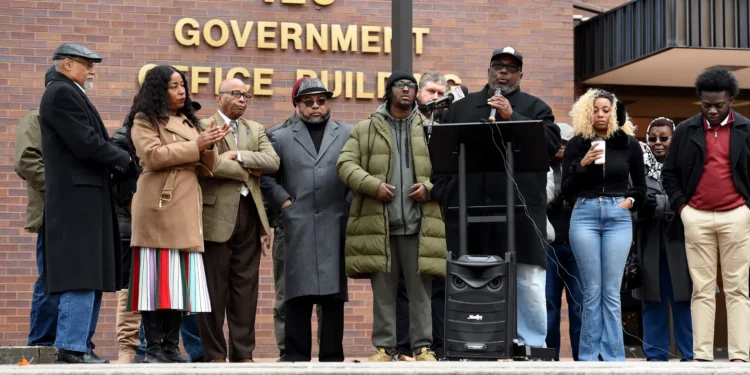March 7, 2025 Story by: Editor
The United States District Court for the District of Maryland has issued a ruling in a lawsuit brought by the Wicomico County Branch of the NAACP against Wicomico County over voting rights.
Under the court’s decision, “all County Council elections henceforth will proceed through a district-based election system, with seven single-member districts electing the seven Council members. That is, all Council candidates in future elections must reside in the district for which they seek election, and only voters residing in that district shall be eligible to vote for the Council candidates seeking election therein. The district system does not apply to the County Executive election, which remains at large.”
Key Details from the Wicomico County Voting Districts Case
Excerpts from the ruling highlight the following points:
- No Black candidate has ever been elected to an at-large position on the Wicomico County Council or Board of Education under the existing five single-member district/two at-large election system (the “5/2 system”). This has remained true since the Board of Education adopted an elective system in 2016.
- Both parties engaged in formal mediation before U.S. Magistrate Judge Erin Aslan and informal negotiations, ultimately agreeing on a resolution that benefits all residents of Wicomico County.
- The plaintiffs and the county acknowledge, based on expert analysis and evidence submitted, that the at-large election structure for the County Council and Board of Education violates Section 2 of the Voting Rights Act. The court found that:
- Black residents in Wicomico County form a group large and geographically compact enough to be the majority in two of the seven proposed single-member districts.
- Black voters in the community demonstrate political cohesion.
- The white majority votes as a bloc in a way that prevents Black voters from electing their preferred candidates, resulting in the historical exclusion of Black candidates from at-large positions.
As part of the negotiated settlement, Wicomico County has agreed to eliminate the 5/2 election structure for County Council elections and is legally prohibited from continuing its use. Moving forward, the County Council will be elected through a district-based system with seven single-member districts. Candidates must reside in the district they seek to represent, and only district residents can vote for those candidates. The County Executive election will continue to be conducted at-large.
Plaintiffs Respond to the Court’s Decision
Several plaintiffs shared their reactions to the ruling:
“W.E.B Du Bois once said, ‘The power of the ballot we need in sheer defense – else what shall save us from a second slavery?’” said Wicomico County NAACP President Monica Brooks. “By demonstrating the strength to take on a legal challenge and seeing it through to this exceptional outcome, Wicomico’s Black voters have seized back the power of the ballot to empower our community toward a new era of equity and opportunity. True democracy needs true representation. It is our hope that the changes effected here will encourage more people of color to run for political office. Wicomico County NAACP and area organizations will be holding seminars on how to run for office, how to be a part of a campaign and elections.”
“This victory belongs to the people,” said Amber Green, an individual plaintiff and advocate from Wicomico County. “It is a testament to the power of collective action and a reminder that when we fight for justice, we win. But our work does not end here. We must continue to engage, to vote, and to hold our leaders accountable. Wicomico County’s future is brighter today because of the courage of those who refused to be ignored.”
“I am proud to be a part of this transformative win for racial justice and equity,” said individual plaintiff and young activist Luc Angelot. “This victory is a declaration that our voices matter, our votes count, and that our future belongs to us. This ruling is not the end, but the beginning of an era where equity is not just an ideal, but a reality.”
Source: Delmarva Now

















